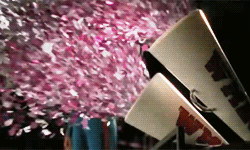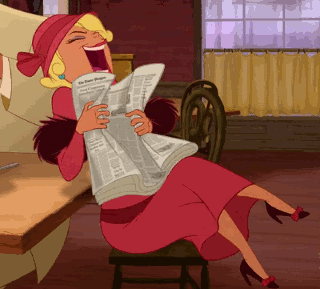Yeah, I'm going there.
When I tell people that I write YA novels, I almost invariably receive the response - "Oh, like Twilight?" Depending on the person, this comes off as disgust or extreme enthusiasm, but rarely anything in between. I answer that I write for the same target audience, but very different novels.
But one thing I never do is take this comment as an insult.
Because... I like Twilight.
I think many YA writers are grateful for Twilight. YA has been an ever evolving genre since its origins, and in my perception, Stephenie Meyer blew the gates to YA wide open and the genre literally exploded. Since Twilight, the YA shelf at my local bookstores turned into shelves. Yes, you see a lot of the oft-complained of Twilight imitators, but you see a lot of innovation too, growing up in the cracks the Twilight explosion left behind. There are thousands (hundreds of thousands?) of people who read YA now that didn't before, because they discovered the genre through Twilight. There are thousands (hundreds of thousands?) of people who
write YA now, or write at all, who didn't before, because they discovered a love of storytelling through Twilight. And I always see more readers and writers as a good thing. Our lives need more storytelling, period.
But I won't stop there. I like Twilight for itself, and not just for what I believe it has done for the industry. On a basic level, I am in awe of a woman who was a full time mom and had a dream so vivid that she sat down every night, or every time her kids were at swim lessons, and wrote wrote wrote. She wrote an entire book. She wrote four books, more than that if you count all of the extra books we haven't seen. I think writings books is hard. I can only imagine writing books when you have a husband and three sons is that much harder. And to write a semi-racy set of vampire novels, based on a dream, when surrounded by testosterone,
especially considering the cultural and religious background in which she was raised, and
then to write queries, send it out, share it with the world, and stand by it through the vitriol flung at it and her... that takes balls. And I admire that tremendously. I have a hard time, sometimes, stringing words together for my critique partners.
But I won't stop there, because I like Twilight as a book. I won't even stop at "it entertained me," even though it did. No. Twilight inspired me.
I am a quarter of a century old. I've loved deeply and lost horribly. I've traveled the world, and lived abroad. I have a couple degrees and have studied at some of the most rigorous institutions of higher learning on the globe. I've always considered myself a feminist, and a rather ardent one at that. And you know what? I have a lot of respect for Bella Swan.
Yes, respect. Because Bella, so often criticized for her lack of personality and priorities, knows absolutely what she wants, whom she loves, and the person she wants to be, and she chases these things down with intense courage and faith.
Bella is dismissed because what she wants is love, as if that's less valid than wanting a career or some other goal. We've all seen the quote, "Harry Potter is about confronting fears, finding inner strength and doing what is right in the face of adversity. Twilight is about how important it is to have a boyfriend." (usually attributed to Stephen King, but I can't find the interview where he supposedly said it). I've always found this comparison outrageously unfair. Do all books need to be Harry Potter? Do all books need to have a didactic message? Who said Twilight was trying to be another Harry Potter, anyway?
But even if so, Twilight is about following your heart and being steadfast to it, which Bella is. There is a point in
Breaking Dawn, after she transforms, in which she realizes that she's a vampire so naturally. As if she were always meant to be one. And Bella is about as perfectly content at the end of the books as she could possibly be. She knew the moment she fell for Edward what she wanted her life to look like, and in the face of all discouragement and mortal danger, she made her dream a reality.
The disparagement comes because her dream is dubbed ridiculous. Why? Anyone who's fallen desperately in love knows the sensation to drop everything and run away with that person. If you've been in love like that, you know how everything else in life fades and loses its potency, work and everyday tasks turn into the wah-wah-wah talking of a parent in a Charlie Brown cartoon. We crucify Bella for experiencing what we
all have, but the only difference is that Bella
does drop everything. She
does turn away from her ordinary life. She lets herself get swept away and she loves every moment of it.
And because Twilight is fiction, I love it. Twilight is not Meyer's etiquette guide for young girls. It is not a self-help book. It is a story about that amazing leap of blind faith and love and lust and bliss that most of us can never take - but at least we can indulge it a little in a book! As a feminist I do not find Twilight threatening, because I don't for a moment believe this is Meyer prescribing a mode of behavior for teenage girls, rather tapping into an intensity that all teenage girls have and allowing it, in her
novel, to spiral out. And any teenager who sees the book as non-fiction speaks more to the bleakness of her reality, than the errors in fiction. I do not hold Meyer, as writer and entertainer, responsible for the void that parents, family, friends, school, and society should help fill for teenage girls.
At the opening of
Breaking Dawn is a quote by Edna St. Vincent Millay:
"Childhood is not from birth to a certain age and at a certain age The child is grown, and puts away childish things. Childhood is the kingdom where nobody dies."
Meyer, and Bella, choose a story in which childish abandon and devotion to dreams is allowed to flourish for a lifetime (an endless lifetime), and I find that extremely compelling and inspiring, even if I would apply that abandon to other aspirations in my life. I think it is a devotion that all writers must have.



















